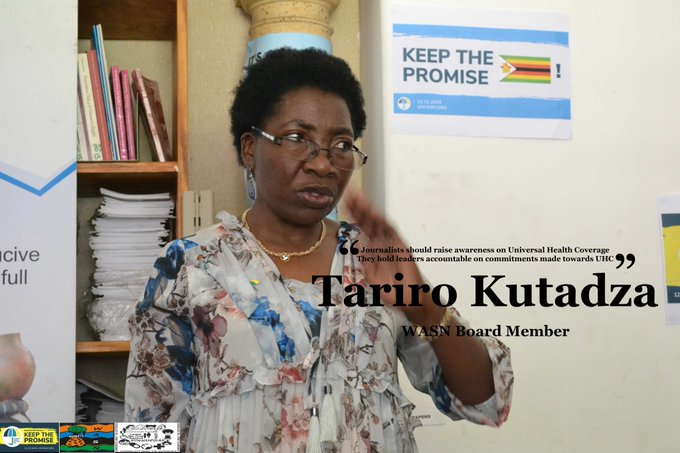|
Getting your Trinity Audio player ready...
|
Writes Nhau Mangirazi
Health players are calling on improved environmental policies that will create better well-being for every citizen dealing with the Tuberculosis (TB) epidemic among other chronic illnesses.
Currently, the Environment Management Agency (EMA) is pushing for a National Environment Action Plan (NEAP) draft covering 2022- 2032 aiming at coordinating environmental planning at national, provincial, district, and community levels as provided for in terms of sections 87 and 95 of the Environmental Management Act.
‘‘It is meant to domesticate global agreements on environmental issues such as the United Nations Frame Convention on Climate Change, and the United Nations Convention to Combat Desertification among others.
‘‘Countries agreed to have NEAP documents in place in order to plan for environmental issues within countries as it recognizes the role of local authorities in preparing and implementing relevant and district environmental action plans, formulating and enforcing by-laws on environmental conservation and management,’’ reads part of the document.
HIV and AIDS advocate, Tariro Kutadza, said authorities must consider the sound environment that will cater to TB patients so that they are catered for in well-ventilated rooms.
‘‘Zimbabwe is a TB burden country and as part of effective measures to deal with the effects of TB control, there is a need to have a clean environment from air and chemical pollution among the citizens well being including better shelter,’’ she said.
TB is also known as lung cancer.
Kutadza noted that the COVID 19 pandemic reduced the gains made in the HIV, AIDS, and TB fight among mostly poor communities including farming and mining areas.
‘‘TB is common among people with HIV and AIDS due to a suppressed immune system. We are advocating to authorities to make sure the environment is clean to curb the spread of TB among communities,’’ added Kutadza.
She further said TB remains a big challenge in the country that is battling to help the ailing health sector. Kutadza was in Maputo as part of the Southern Africa Development Committee on TB in the mining communities. She leads the oversight committee.
Sustainable Development Goal 3 is aimed at ensuring healthy lives and promoting well-being for all at all ages. It aims to end the epidemics of AIDS, tuberculosis, malaria, and neglected tropical diseases and combat hepatitis, water-borne diseases, and other communicable diseases by 2030.
Muchanyara Mukamuri, executive director of Young Women Christians of Zimbabwe said there is a need to understand the dynamics of how the environment affects different groups of populations in societies that remain key to the policy aimed at protecting the well-being of communities.
‘‘There is a need for provision of better services including provision of safe and clean drinking water, clean energy sources, and garbage collection among others,’’ said Mukamuri in a written response.
She added that women and girls need more time to improve themselves academically, and economic status so that health care is equal among citizens.
‘‘Government must take measures to implement the action plan and achieve the sustainable development goals. Achieving these goals means Zimbabwe will end AIDS by 2030, and eradicate TB and other communicable diseases. The environment can also meet the needs of generations to come if this action plan is implemented as a positive move in the health sector,’’ she said.
Mukamuri added that the facilitation and implementation remain keys to its success.
According to the United Nations Development Fund (UNDP), Zimbabwe is among the 14 high-burden countries for TB, multi-drug resistant TB and TB-HIV co-infection
The Global Fund notes that TB case incidence and mortality have declined by over 60% between 2011 and 2018. However, TB mortality remains high, at 15% among notified TB clients.
Nhau Mangirazi can be contacted by email [email protected]






